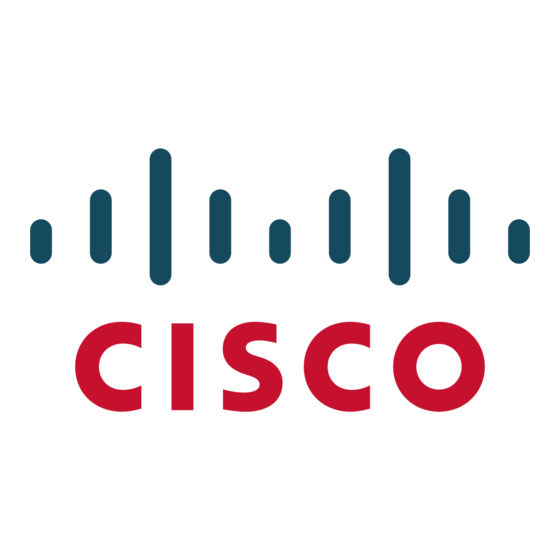© 2009 Cisco Systems, Inc. All rights reserved. This document is Cisco Public Information.
Manageability
Superior Manageability
addresses. This can be used to prevent attacks that attempt to poison the DHCP
binding database, and to rate limit the amount of DHCP traffic that enters a switch port.
● IP source guard prevents a malicious user from spoofing or taking over another user's IP
address by creating a binding table between the client's IP and MAC address, port, and
VLAN.
● DHCP Interface Tracker (Option 82) augments a host IP address request with the switch
port ID.
● Port security secures the access to an access or trunk port based on MAC address.
● After a specific timeframe, the aging feature removes the MAC address from the switch
to allow another device to connect to the same port.
● Trusted Boundary provides the ability to trust the QoS priority settings if an IP phone is
present and to disable the trust setting if the IP phone is removed, thereby preventing a
malicious user from overriding prioritization policies in the network.
● Multilevel security on console access prevents unauthorized users from altering the
switch configuration.
● The user-selectable address-learning mode simplifies configuration and enhances
security.
● BPDU Guard shuts down Spanning Tree Protocol PortFast-enabled interfaces when
BPDUs are received to avoid accidental topology loops.
● Spanning-Tree Root Guard (STRG) prevents edge devices not in the network
administrator's control from becoming Spanning Tree Protocol root nodes.
● IGMP filtering provides multicast authentication by filtering out nonsubscribers and limits
the number of concurrent multicast streams available per port.
● Dynamic VLAN assignment is supported through implementation of VLAN Membership
Policy Server (VMPS) client functions to provide flexibility in assigning ports to VLANs.
Dynamic VLAN helps enable the fast assignment of IP addresses.
● Cisco Network Assistant software security wizards ease the deployment of security
features for restricting user access to a server as well as to a portion of or the entire
network.
● Two thousand access control entries (ACEs) are supported.
● Cisco IOS CLI support provides a common user interface and command set with all
Cisco routers and Cisco Catalyst desktop switches.
● Cisco Discovery Protocol version 2 (CDPv2) allows the Cisco Catalyst 3560 Series
Switch to negotiate a more granular power setting when connecting to a Cisco powered
device, such as IP phones or access points, than what is provided by IEEE
classification.
● The PoE MIB provides proactive visibility into power usage and allows customers to set
different power level thresholds.
● Switching Database Manager templates for access, routing, and VLAN deployment
scenarios allow the administrator to easily maximize memory allocation to the desired
features based on deployment-specific requirements.
● Generic On-Line Diagnostic (GOLD) checks the health of hardware components and
verifies proper operation of the system data and control plane at run time and boot time.
● VLAN trunks can be created from any port, using either standards-based 802.1Q
tagging or the Cisco Inter-Switch Link (ISL) VLAN architecture.
● Up to 1024 VLANs and up to 128 spanning-tree instances per switch are supported.
● Four thousand VLAN IDs are supported.
● Voice VLAN simplifies telephony installations by keeping voice traffic on a separate
VLAN for easier administration and troubleshooting.
● Cisco VTP supports dynamic VLANs and dynamic trunk configuration across all
switches.
● IGMPv3 snooping provides fast client joins and leaves of multicast streams and limits
bandwidth-intensive video traffic to only the requestors.
● Remote SPAN (RSPAN) allows administrators to remotely monitor ports in a Layer 2
switch network from any other switch in the same network.
● For enhanced traffic management, monitoring, and analysis, the Embedded Remote
Monitoring (RMON) software agent supports four RMON groups (history, statistics,
alarms, and events).
● Layer 2 traceroute eases troubleshooting by identifying the physical path that a packet
takes from source to destination.
● All nine RMON groups are supported through a SPAN port, which permits traffic
monitoring of a single port, a group of ports from a single network analyzer or RMON
probe.
● Domain Name System (DNS) provides IP address resolution with user-defined device
names.
● Trivial File Transfer Protocol (TFTP) reduces the cost of administering software
upgrades by downloading from a centralized location.
● Network Timing Protocol (NTP) provides an accurate and consistent timestamp to all
intranet switches.
Data Sheet
Page 11 of 22

